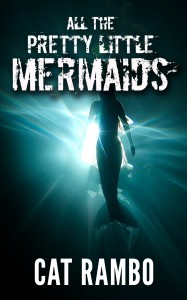

Daniel Abraham came out with the most recent of his Dagger and Coin series, The Widow’s House, and it was just as enjoyable as the first three. Abraham has a gift for flawed characters that you care deeply about, whose dilemmas rack the reader to the heart even when they’re doing despicable things.
Carol Berg’s Dust and Light. Carol consistently hits it out of the ballpark when it comes to epic fantasy, and this start to a trilogy is no exception. If you like Sanderson, Martin, or Bujold’s fantasy, you will like Carol Berg.
The Hole Behind Midnight by Clinton Boomer is terrific urban fantasy with a highly original protagonist. Think of a mash-up of Jim Butcher’s The Dresden Files with the Tyrion Lannister sections of Game of Thrones and Salman Rushdie’s Midnight’s Children and you’re in the general vicinity.
M.L. Brennan manages urban fantasy outside the tired norm with Iron Night, the latest in her Generation V series. I will admit, her kitsune character has me totally captivated, but the vampires manage not to be cliche, and protagonist Fortitude Scott is wonderful, reminding me of Rob Thurman’s engaging Caliban series.
Stephen Brust and Skyler White’s The Incrementalists is urban fantasy taken in a different direction, with an ancient society intent on nudging humanity along in the right directions.
...

As far as selling goes, the first day was not particularly successful and on that day 50% of the book sold were to each other. The second day was more of the same, although we didn’t sell as many to each other. Overall, doing a group thing was definitely a good idea: it made for a table packed with attractive, professionally done books along with some table display stuff like a robot, a war-elephant, and some fantasy stuffed animals (including plushie Chtulhu). It also meant we had people to chat with and the livelier appearance of our table helped pull people in, I think. (Plus we had candy.) We might have done better on the first floor than the second, and there were some lighting issues.
I presented a workshop on podcasting, which was well attended, and I ran them through some whys and whats of recording your own podcast as well as ranting a bit about rights and not paying to publish. A number of them signed up to get advance notice of the Building an Online Presence for Writers book.
Overall, it was fun, and there was some decent networking, plus I passed out some postcards on my classes. On the other hand, did we sell many books? Not at all. However, the cost of the $100 table, split between all of us, was pretty darn reasonable, and it meant we could attend workshops. We didn’t have a formal name, so I’d put “Seattle Speculative Fiction Writers” down. So many people asked about our group the first day that Django ended up putting out a sign-up sheet for news of group activities and gathering two pages of e-mail addresses. I look forward to the first wine and chat party.
If I ran an effort like this again, I’d focus more on selling: perhaps do book bundles, make a sign letting people know the books were priced at special rates for the book festival, maybe have some lower-priced items or stocking-stuffer type trinkets, and would have a signup sheet for other mailing lists, like each author’s. However, the location was so difficult to get to that there was no foot traffic and some people had difficulty finding the place — if they do it in the same location next year, I’ll pass and spend that time writing instead, but as Brenda noted, if they move it back downtown, it might be worthwhile.
...
 Yesterday I spent a pleasant chunk of time talking to the Clarion West 2013 students, along with Django Wexler. Django and I were the “mystery muses,” a Friday feature for the CW students where people come in to chat about a specific aspect of the writerly life. Django spoke well to the experience of having one’s first major book come out, since his book (which I have read and heartily recommend) The Thousand Names just came out. He let us all know (to mass disappointment) that it doesn’t lead to being booked on the Leno or Daily Show or lavish book tours, though he did get to go to ComicCon.
Yesterday I spent a pleasant chunk of time talking to the Clarion West 2013 students, along with Django Wexler. Django and I were the “mystery muses,” a Friday feature for the CW students where people come in to chat about a specific aspect of the writerly life. Django spoke well to the experience of having one’s first major book come out, since his book (which I have read and heartily recommend) The Thousand Names just came out. He let us all know (to mass disappointment) that it doesn’t lead to being booked on the Leno or Daily Show or lavish book tours, though he did get to go to ComicCon.
I decided to talk about self-promotion and career building, since that’s advice I didn’t get a lot of while at Clarion West myself. And I came up with nine maxims, but lost that index card so I have an incomplete list. Maybe the students can chime in to tell me what I’ve forgotten.
Some other things that got mentioned:
And here’s something I didn’t mention, but which has come up a lot recently, as to what to blog about, both in terms of finding something interesting and not spending too much time on it: excerpts of what you’re working on both fulfills those terms and encourages you to get some words out.
Enjoy this advice for writers and want more content like it? Check out the classes Cat gives via the Rambo Academy for Wayward Writers, which offers both on-demand and live online writing classes for fantasy and science fiction writers from Cat and other authors, including Ann Leckie, Seanan McGuire, Fran Wilde and other talents! All classes include three free slots.
Prefer to opt for weekly interaction, advice, opportunities to ask questions, and access to the Chez Rambo Discord community and critique group? Check out Cat’s Patreon. Or sample her writing here.
...
 On August 16, 2013, at 8 p.m., Seattle’s Wayward Coffeehouse (6417 N. Roosevelt WAY NE, #104, Seattle, WA) will host a reading of four of the area’s notable speculative fiction writers. Ted Kosmatka, J.M. Sidorova, Django Wexler, and Cat Rambo will read from new and forthcoming work.
On August 16, 2013, at 8 p.m., Seattle’s Wayward Coffeehouse (6417 N. Roosevelt WAY NE, #104, Seattle, WA) will host a reading of four of the area’s notable speculative fiction writers. Ted Kosmatka, J.M. Sidorova, Django Wexler, and Cat Rambo will read from new and forthcoming work.
The four readers share something beyond a love of speculative fiction — they are all represented by the same agent, Seth Fishman of the Gernert Company. After meeting during the Locus Awards recently hosted in Seattle, the four joined forces for a joint reading at the Wayward Coffeehouse. Their work ranges from epic fantasy to hard SF.
About the readers:
...
Want access to a lively community of writers and readers, free writing classes, co-working sessions, special speakers, weekly writing games, random pictures and MORE for as little as $2? Check out Cat’s Patreon campaign.

"(On the writing F&SF workshop) Wanted to crow and say thanks: the first story I wrote after taking your class was my very first sale. Coincidence? nah….thanks so much."

(horror, short story) I glance in the glass wall’s reflection. It faces me twenty feet away as I walk up the stairs, marble slab steps showing grainy pink underneath my red sneakers. My fingers clutch the railing’s chrome. I’m feeling shaky, that internal quiver where your body announces that it may not be up to this. I focus on my image. Is my hair longer now? The eyes wider, bluer? The lips, are they swinging towards bee-stung or thinning?


This site is protected by reCAPTCHA and the Google Privacy Policy and Terms of Service apply. This site is a participant in the Amazon Services LLC Associates Program, an affiliate advertising program designed to provide a means for sites to earn advertising fees by advertising and linking to Amazon.com.